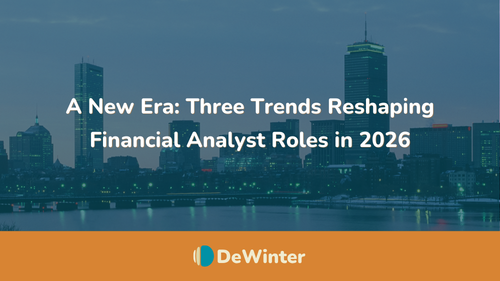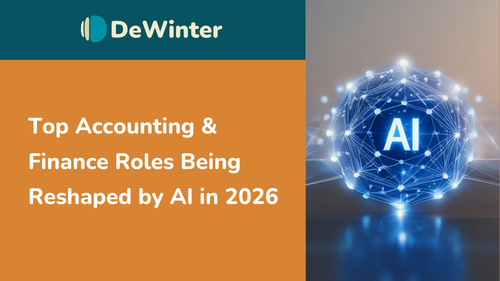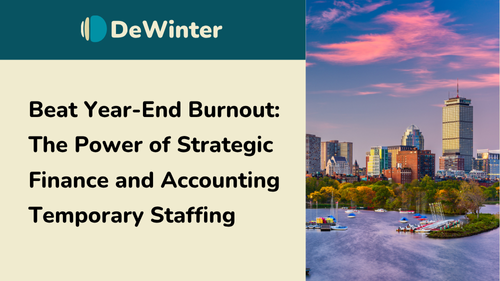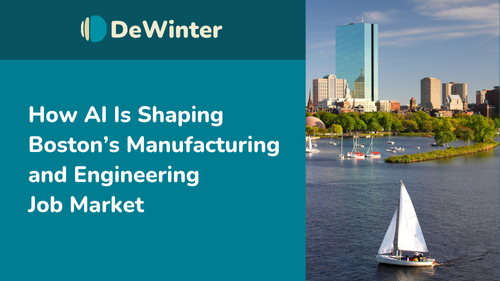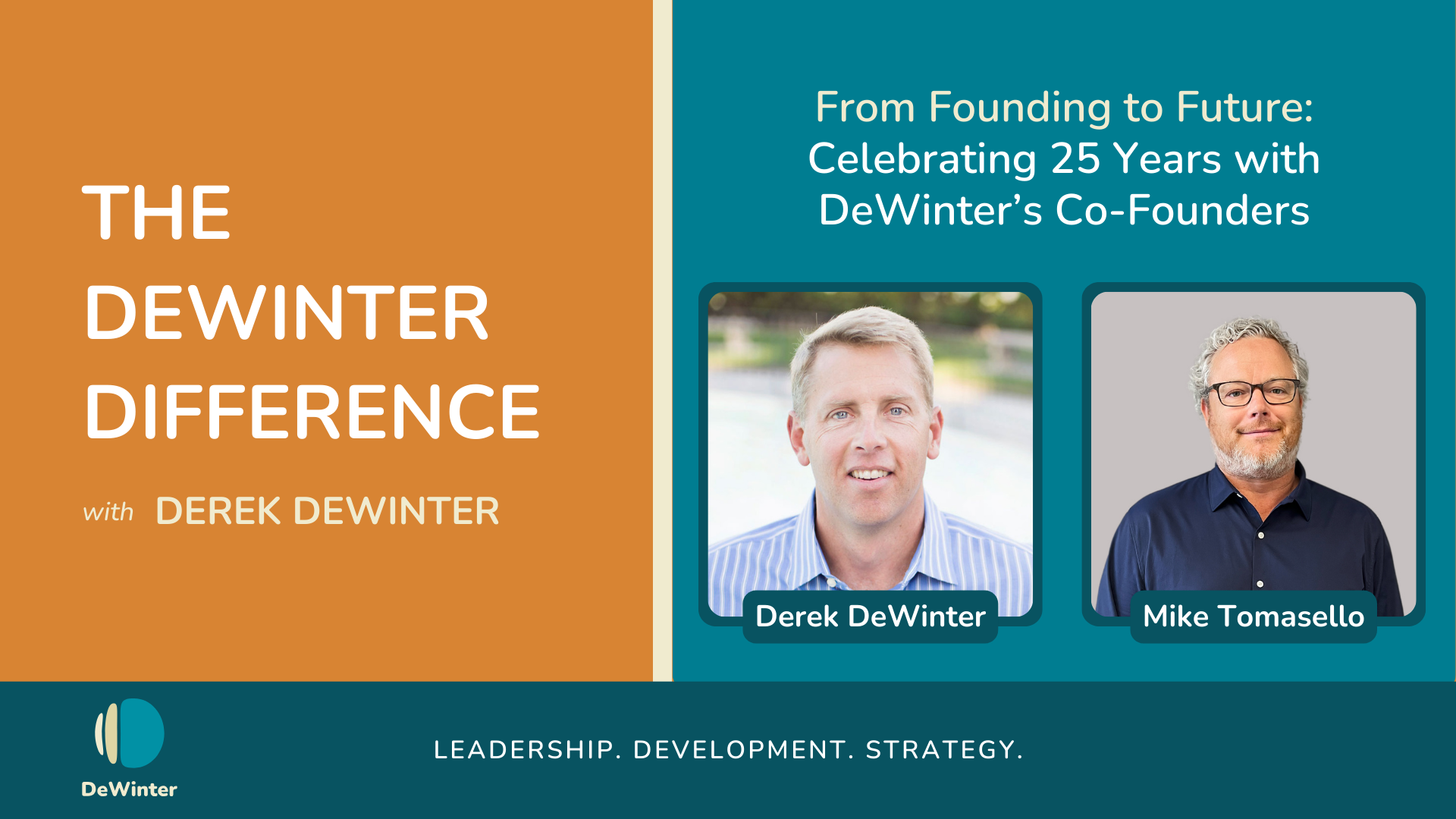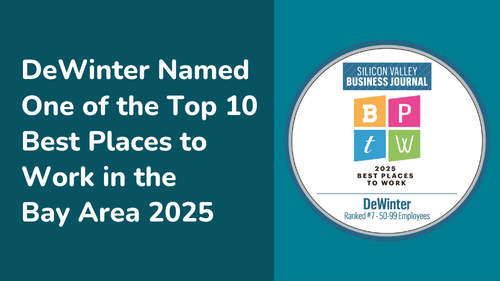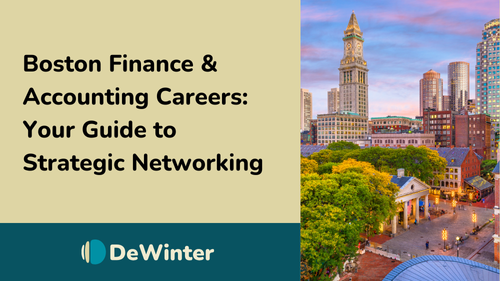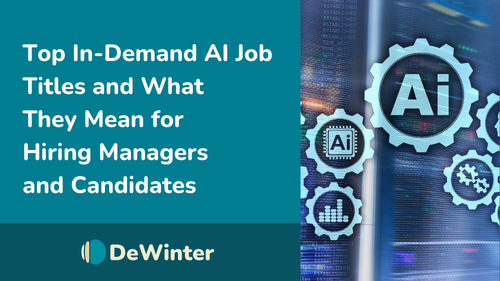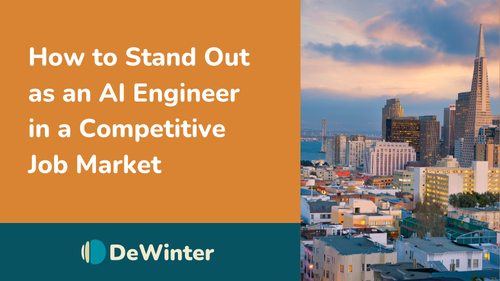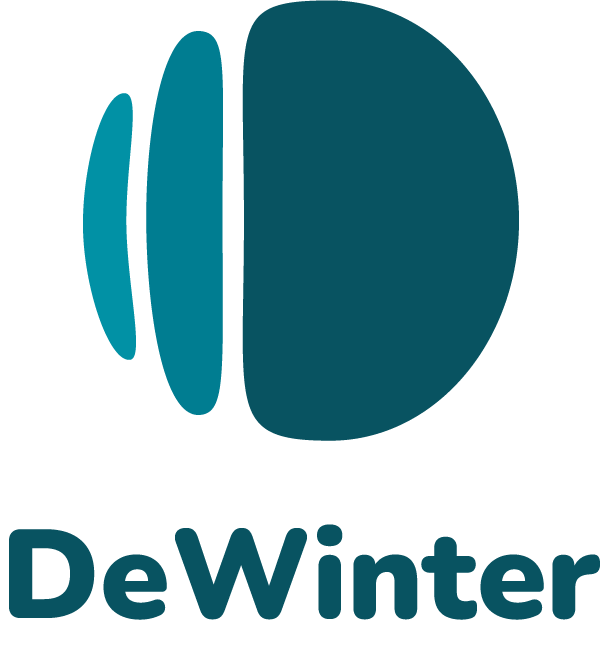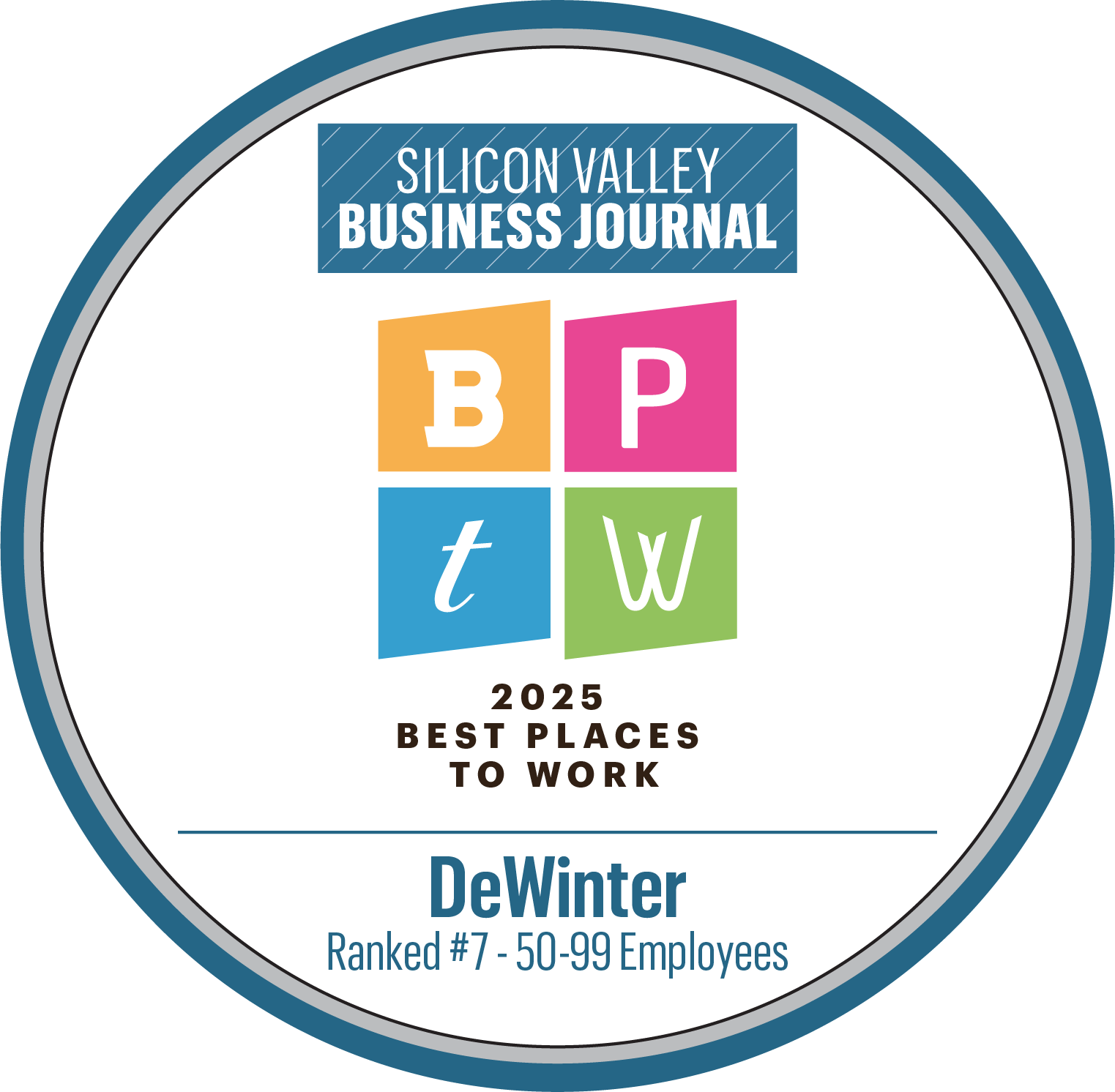The DeWinter Difference: Noland Granberry, CFO at Second Harvest of Silicon Valley
About The Episode
In this episode of the DeWinter Difference, Derek chats with Noland Granberry, Chief Financial Officer at Second Harvest of Silicon Valley. Hear from Noland about his journey from a successful career in the tech industry to shifting into the non-profit world with Second Harvest, surprising facts about food insecurity in Silicon Valley, and more.
Interested in getting involved with Second Harvest? Learn more and get connected with volunteering or donation opportunities at the links below.
Volunteer Information:
Sign Up to Volunteer | Second Harvest of Silicon Valley (shfb.org)
Donation information
Home | Second Harvest of Silicon Valley (shfb.org)
donor.relations@shfb.org
.
Listen now at the streaming sites listed.
Learn more about the DeWinter Difference podcast here and share your thoughts and comments below.
Episode Transcript
This transcript has been edited for length and clarity.
Derek DeWinter: Welcome to our listeners who are tuning into the DeWinter Difference, an audio podcast where I spend some time with incredible executives I've worked with and you get to listen in. My hope is that our conversations are unique and insightful, short enough so you won't prefer to respond to texts and emails while listening, but long enough so that you get some great takeaways that you can apply in your own career, life, and relationships. Today I have the opportunity to speak with Noland Granberry, Chief Financial Officer at Second Harvest of Silicon Valley. Noland's career, prior to a pivot into nonprofit with Second Harvest was spent in public and private tech companies up and down Silicon Valley. Conversations like this are very easy to have when you go back 20 or more years with someone, especially someone like Noland.
I hope you enjoy a very casual and fun conversation between friends and Noland, thanks for spending some time with us.
Noland Granberry: Thanks, Derek very excited to be here and appreciate you giving me the opportunity to join you.
Derek DeWinter: Well, we're getting the better end of the deal. There's no doubt about that. Most of the people who are listening to us who live in the Bay Area will have some familiarity with Second Harvest. In fact, Second Harvest is an organization that our firm focuses on donating time and resources to, which we talked a little bit about last year.
I'm guessing not a lot of us know truly how large the organization is, your scope of services, and the mission of Second Harvest. So maybe if we can start the conversation by getting to know a little bit more about, and you know, the great place that you work that would be awesome.
Noland Granberry: Sure, I'll start with our mission.
Our mission is that we're looking to end hunger in our communities, so that's, that's the mission. We believe that this is a solvable problem, particularly here in the Bay area, Silicon Valley, where there is a lot of wealth. I think many people are surprised that there is food insecurity that exists in the Valley.
Second Harvest was established in 1974. This is our 50th year anniversary and believe it or not, it was started in a garage back in the day there were several resourceful and innovative community members that realized that there were thousands of neighbors going hungry. We're throwing away millions of pounds of fresh fruit and vegetables and you know, with the Silicon Valley's innovative nature, these community meeting members founded Second Harvest, 50 years later, we're actually still going strong.
We actually have 300 employees and are very fortunate to have an awesome volunteer base and volunteers in general. We deliver about 125 million pounds of food every year to over 300 agencies and we serve over 900 distributions through those agencies.
I think one thing to point out for us is that our focus is delivering healthy food. You won't find a lot of the snacks and sugary-type things as a part of our offering. It's important that we deliver a healthy supply and today we're serving one in six or about 500,000 folks a month.
Derek DeWinter: Wow, that's incredible, I had no idea it was quite that expansive and you partner with a variety of different organizations. How many did you say?
Noland Granberry: Over 300 agencies and that can be churches, community centers, schools, and all the like.
Derek DeWinter: Well, I mean, you had a very successful career in mainstream tech as a CFO and financial executive. So what was the thing that drew you away from that or to Second Harvest?
Noland Granberry: I'm originally from Ohio, and that's as far away from tech as you can get. Back 30 years plus I had an opportunity to come out to San Jose as the tech boom was starting. I was working in public accounting with Ernst and Young, Arthur Young at the time, but that later emerged with Ernst and Winnie and became Ernst and Young. I spent about 11 years in public accounting before moving into the real tech world. I worked with a number of very good tech companies over the years, including ICO systems, Silicon Image, and SanDisk.
My last job was Nanasys, which was a privately held entity with hopes of going public. We were unable to do so and there came a time when I felt like I needed to think of doing something differently and being a part of an organization like this was something that I thought of but didn't know how or where or when I could actually do it, being so busy, tied up in the tech world, but as fate may have it when I was leaving Nanasys I got a call from a recruiter who talked about Second Harvest and I came in and met with the CEO and we hit it off real well, and I learned a lot about Second Harvest as a food bank and realized that what I thought was the case. Where main clients would be those who were destitute, unhoused, and down on their luck sort of things and came to realize that the majority of our clients are actually hardworking Silicon Valley players who, for whatever reason in this expensive environment just can't always seem to make their ends meet.
We're here to serve as a supplement to that, my ability to move from the craziness of the tech world into into a space where I was able to feel like I was given back to the community was a big deal in my making that change.
Derek DeWinter: Well, that transition is not easy to make in the Bay Area because it is so expensive in terms of the transition into a nonprofit, and I've talked to a lot of people over the years of my career who were worried about wanting to make that transition into something more philanthropic or nonprofit, and the draw is never monetary, unfortunately, but is rather something that kind of fills a bucket on a more personal level.
This may be an unfair question, but do you feel more professionally fulfilled or personally fulfilled going to work every day of Second Harvest than you did before?
Noland Granberry: You know I do. I can remember conversations that I used to have with some of my peers in the tech world. We always felt like it was great and exciting. The things we were doing in our roles and the companies we were working for, but there did still seem to be that missing thing because we always ask ourselves, how are we actually making a difference?
We might be making a difference in the world of folks making money and what have you, but are we really making a difference? My opportunity to join Second Harvest was really that true opportunity for me to make a difference.
I actually operate sort of in my role in sort of the back office, so to speak.So I'm not on the front lines all the time, but when I get a chance to go out and actually join the distribution as a volunteer and get to see the appreciation of the folks coming through and receiving food you know, it's a blessing. I definitely feel very, very good about that.
Derek DeWinter: I bet a lot of people might think that a move into nonprofit might mean fewer hours, maybe a little bit less, you know, crazy work at the end of peak cycles. But, then that may or may not be true, and certainly it will be different for different people. Do you think there are a fair number of similarities that Second Harvest has compared to Silicon Valley? And what might surprise somebody who's listening to this is what the busiest time of the year is for you and your team.
Noland Granberry: So We're pretty busy pretty much all year round, but it's, it's a different type of busy. I think unlike in the tech world or for-profit world quarterly results, quarterly performance. It's actually, you know, not so much a requirement from a quarterly reporting standpoint, but from a delivery of food to the community and making sure we're able to do that.
That was most evident when we hit the pandemic in 2020, where we had to real-time shift total gears on how we were operating completely to go from delivering food to about 250,000 individuals to delivering food to 500,000 individuals. That was in a matter of months, the logistics behind that, the ability to put systems in place behind that was an amazing effort by the organization and the team. But I think it would rival almost any for-profit business relative to some of the complexities and dynamics that you need to face, to make something like that happen.
Derek DeWinter: We're now going back four or five years, I suppose. And you talked about serving 250,000. Now you are routinely servicing 500,000. There has not been a drop off in need at all since the pandemic.
Noland Granberry: That is the one, if there's a message that I can deliver today is that yes, we have been the beneficiary of a very, very generous community, particularly during the pandemic years where there was a lot of money raised in support of the pandemic effort and, and that is sort of, you know, dwindled off to some degree.
But we have not seen the need decrease. There was a small ebb, you know, in early 2022 or late 23, but then as the government support ended and the dynamics of, the interest rate economic changes in the economy impacted folks. We are back at our peak pandemic levels and we are, we're in need of folks to, you know, continue to understand that that's where we are at and provide enough support, whether it's through volunteering efforts or through donations in support of the fact that we are actually still see the same number of folks that we were seeing back at the peak pandemic.
Derek DeWinter: Would it be fair to say that if you have limitations in terms of your ability to serve, it is monetary donations or donations of any sort? Well, I guess monetary donations. Or resources to be able to deliver, or is it people and volunteer resources or a variety of different levers?
Noland Granberry: Truth is both are important. If you think about the amount of volunteers that we utilize in any year, I believe last year we had over 40,000 volunteers provide over 200, I want to say 50 or 60,000 hours of volunteer services. It's almost doubling our entire team of the 300 I mentioned earlier that we have in support of our organization.
But having the donations, and the funding is actually very critical to us. We feel that through our buying power and the relationships we have, we're actually able to make the most of every dollar that we receive. Probably much more than I wouldn't say probably for sure, much more than any individual who could go to a Safeway or Albertsons or wherever and buy it and actually bring that food to the organization.
We, as I said, we're serving 1 and 6, and we actually say a dollar will allow for us to serve I think it's 1 or 2 meals we can create it where it can serve at least 1 or 2 meals for anyone.
Derek DeWinter: With regard to donations and corporations leaning in, and that, topic of conversation. I have read a lot of articles lately about corporate ESG initiatives. And many really very frustrating to me at a personal level, because there appears to be an increasing amount of backlash for, you know, ESG initiatives and sponsorship, which include monetary donations and community programs that would benefit, you know, nonprofits like Second Harvest, it should be noted, two, that most of the things that I've read that take a negative take on the SG have come from policymakers and political candidates versus employees.
Now you've spent time as an executive in for-profit companies and now a nonprofit. Do you think there is, or should be an implicit obligation for companies to give back to organizations like Second Harvest?
Noland Granberry: You know, Derek. No, this is, this is an area that I think that when I look at folks that step up with us for us and do things, and we have a lot of companies that do a lot of good with us and donating money. We have so many companies that put together, teams to volunteer that come out to volunteer with us and that is very, very, very, very helpful for us.
So when I, when I look at that the focus on how folks are I tend to focus on that being that there are a number of good players and we continue to try to reach people and see how much more we can expand that. So that's how I sort of view it.
Derek DeWinter: More of a glass-half-full perspective instead of my negative perspective, like, why can't there be more? And so, like, we're happy with what we can get.
Noland Granberry: We are always striving to push for more for sure. It actually is you know, critical continuing, like I said, 500 000 folks a month shouldn't be the case in the Bay Area if you think about it, right? So for everyone that actually is helping out big kudos and, and we want to try to give kudos to even more.
Derek DeWinter: For those who you and the organizations that you work with touch there are many more thousands that may not even have access to those organizations or you to be able to get access to food as well. So, you know, in terms of a total addressable market, it's, I'm sure, significantly larger than that, unfortunately. So I mean, obviously successful career over the past 20-plus years. What would you be doing if you weren't a CFO?
Noland Granberry: Derek, I'm a sports nut. I played basketball in college, division three though. Can't say I was a D1 player, but division three, but that was a great experience for me. I think the idea of sports for youth is a, very important dynamic that I think all should share in because it builds so many life lessons.
So if I had my driver of having something else other than being a CFO, it would be coaching probably basketball in, some form or fashion, whether it's youth basketball or High school, or I would even love to get to a college level. But that would have been where I think I would have been focused.
Derek DeWinter: CFO? Those are long roads to travel, unfortunately. Yeah. Well, you know, you got time. You got time. That's for sure. Well, instead of being on the receiving end of so many of these questions We get to turn the tables and you get to ask me an unscripted question that I don't know anything about.
So you shoot and I will try to respond as best I can.
Noland Granberry:
That’s okay. Both of them are pretty easy or pretty straightforward. I think you've been quite successful and I have enjoyed the many, many years that we've had in our relationship. So I would be curious as to you, what would you be doing if you hadn't brought up the great recruiting firm that you did and the things that you're doing now, what would you be doing differently?
Derek DeWinter: You know, I have a real passion for cooking.
Noland Granberry: Ah.
Derek DeWinter: It's probably not something people would have thought that I would say, but I love cooking, I love the kitchen, I love the intricacies of meal preparing. I also like the fact that you know, preparing a meal is that you can share with others as a way of kind of bringing people together.
My wife calls it my love language, I love cooking for people and making things and it just, I mean, from the moment I think up, I got to go to the store and like the things I'm going to get, like, it gets me excited so I could see myself doing that, although fully recognizing that that is a very difficult lifestyle. But the practical side of me would have said, no, maybe you should do something easier, 'cause that is a tough job but something that I think I would have loved doing.
Noland Granberry: Ah, awesome. Awesome. Maybe I can get to taste one of your meals one day.
Derek DeWinter: One of these days, buddy.
Noland Granberry: One of these days. The other quick question, there's a big game coming up in a week and I was just curious. Do you think the Niners can get to their sixth Super Bowl?
Derek DeWinter: So by the time this is published, I will have known what the answer is. I cannot help but, you know uh, be a homer on this one. I know that the whole world's talking about Mahomes is unbeatable, by all accounts, it certainly seems to be, but I don't know. I just can't help but think that Niner's going to pull this one out.
Not without great difficulty which is like really putting my neck out there. I really think they've got this one. So fingers crossed and if it could be wrapped up with an MVP for Purdy, I think that would just drive people crazy, I think that'd be pretty fun. You?
Noland Granberry: I just really like a good game. I'm a big Steelers fan. My oldest son is a Niner fan, so I have my heart leading to him so he can get a victory and I love Mahomes, it's a tough one for me with all those three considerations. I'd love to see a great game, but it'd be great if the Niners could pull it out and get number six.
Derek DeWinter: Well, if you end up at a party and someone's putting squares up, hopefully, you land on, you know, the seven on the four, whatever you have picked for the quarter, and you can have a great game and maybe walk away with a couple of bucks. Well, Noland, you have a great team of executives, leaders, and team.
You all are doing awesome things at Second Harvest. What can listeners do if they want to get involved or have their organizations involved?
I will say to folks who are listening, we will have contact information for you to be able to get your groups together to be able to volunteer. I have volunteered numerous times. It is work that seems like it could go on forever when your shift is done, the work is not done ever. I've never done a shift where I've thought, oh, and we're good like there's always more to do.
So I cannot, you know, I cannot say more strongly than this. Please, please, if you can find time to donate, it is an incredibly great experience. Who should folks contact to donate?
Noland Granberry: Going to www.shfb.org and on there, it's very simple. There are two buttons to push one that says donate and one that says volunteer. You click on those and it's just very straightforward to accept the donation and deliver the donation.
If you click on the volunteer side, it is very easy to pick a spot, pick a time, whether you're going out to a distribution, or whether you're actually participating in a sort. Again, that's www.shfb.org and I just like to say, you know, we're back at peak levels and really should not have food insecurities in the Valley.
It's a solvable problem and everyone can make a difference. So donating time and money is very, very much appreciated.
Derek DeWinter: On that note, I'll make a transition and say thank you for donating your time to me, my friend. I hope that we run into one another again real soon. I'll be intentional about that after this conversation.
To everybody out there, you know, take it upon yourself lean in, and help if you can, please. Thanks, Noland. Appreciate it. Take care. Bye.

